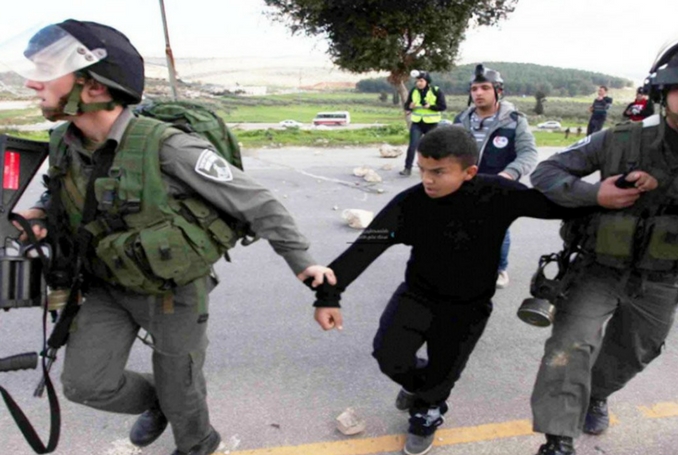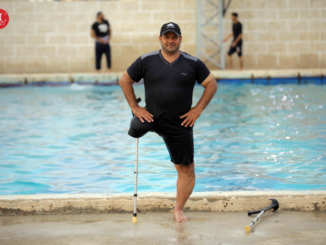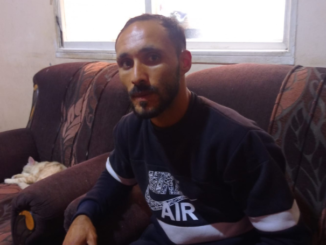
In the field of medicine, we often speak of the social determinants of health. In Palestine, not only social, but political determinants of health have a grave impact on the well-being and mental health of our community. I am not just talking about the political blackmail through recent blatant cuts of the US administration of millions of US dollars from East Jerusalem hospitals and defunding UNRWA educational and health services, but also through the daily realities of dismal work opportunities, a vacuum of leadership, the threat of political detention haunting our youth, and the pervasive experiences of loss and grief. Centuries of political oppression has created a cascade of damage to collective identity and individuals’ personalities.
The ongoing siege of Gaza is only a single dramatization of how the political realities of occupation deliberately destroy the quality of life for Palestinians. In a society where the sudden traumatic death of young people is common and the experience of detention and torture touch every family, psychological suffering and collective anxiety are pandemics. Who better than mental health professionals to understand how this omnipresent pain and fear can intimidate the population or even push individuals into radicalization?
In my governmental office at the mental health unit responsible for mental health services in the West Bank, I often receive donors and representative of international medical and mental health NGO’s, who are interested in supporting our mental health system. Some are ready to pay for medications, equipment, training; but they shy away from advocacy and political solidarity.
But, solidarity with the Palestinian people and advocacy for their human and national rights is just a therapeutic stand in the face of their collective historical trauma and is not limited to mental health professionals. Without such solidarity, the interventions of mental health professionals may do more harm than good as such interventions fail to be preventive, might pathologist the experience of Palestinians, medicalizes their reactions and inhibits their agency, while maintaining the status quo of their pathogenic context.
The decision by the International Association for Relational Psychoanalysis and Psychotherapy (IARPP) to hold its 2019 conference in Tel Aviv and the participation of the Association de Conferences de Psychiatrie de l’Enfant et de l’adolescent de Langue Francaise en Israel (COPELFI) – at a colloquium on Trauma in Rennes, France, this December – are recent examples of how occupied Palestine is overlooked by mental health professionals, demonstrating how Western identification with the Israeli experience is facilitated. But this bias is classical in my profession; I use search engines often to see how much is published in my professional domain in relation to Palestine and Israel: so little is published about Palestinian trauma, so much is published about Palestinian “terrorism” while so much is published about Israeli trauma, so little is published about Israel’s terrorism.
Propaganda is not limited to media! Even in professional settings, Palestine is hushed, and the final considerations of the trauma of the Jewish nation are silencing much of the critical dialogue about the occupation. In 2014, just after the massacres in Gaza, I was invited to speak at the Tavistock and Portman Institute in London. After multiple attempts to intimidate me into silence, one of the professional participants shouted at the moderator, “This is one-sided; why didn’t you invite an Israeli speaker?” “It is a betrayal of the Jewish founding fathers of this place” to invite a person like “her!” a psychiatrist who raises questions about the role and responsibility that professionals share to engage with the political reality.
Europeans, Westerners, and Israelis do not own the profession of healing, nor do they possess the experience of Palestinians. To disregard the experience of Palestinians is—at the very least—neglect; to condition listening to and inviting Palestinians to inviting Israelis is an illusion of symmetry and a promotion of the Palestinian normalization with and dependency on Israelis to reach international professional venues; that ominous dependency that makes the trauma of the Palestinians more complex. Instead of questioning Israeli professionals about their ethical responsibilities as Israelis and as professionals towards the political trauma of Palestinians, international professionals become an accomplice in denial and that impedes their role as a third party with a potential role to promote psychological healing and encourage restorative justice and future reconciliation.
Many professionals today take pride in having maintained solidarity with Nelson Mandela and the people he represented in his opposition to the apartheid regime of South Africa years ago. Few today would wish to be known as having brought pro-apartheid white South African professionals to conferences so that they could share the expertise of their trauma caused by black South Africans. Likewise, mental health professionals should not depend upon Israelis to provide expertise on the shock of our political reality. Instead, mental health professionals should take pride in supporting their colleagues in Palestine in their daily work and in generating knowledge and awareness of the human rights abuses perpetrated by the state of Israel which engendered trauma for both peoples. Meanwhile, we, Palestinian mental health professionals, will continue our critical dialogue of the occupation until its hegemony is exposed and deconstructed.
– Samah Jabr MD is a psychiatrist and psychotherapist; the Head of the Mental Health Unit, Palestine Ministry of Health; and Assistant Clinical Professor, George Washington University, Washington DC, USA. She is also the author of Derrière les fronts (Behind the Frontlines). She contributed this article to PalestineChronicle.com. (This article was originally published in Middle East Monitor)







